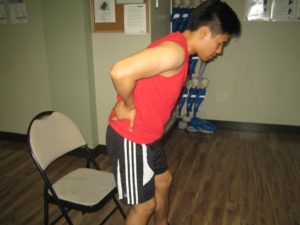A hip fracture is a serious injury that happens when the thighbone receives a crack or break. Generally, common causes are falls to the side where the hips are the victim of a direct impact, though disease can also trigger this such as cancer. In addition, this kind of injury can cause life threatening complications and surgery is required to be repaired.
The chances of receiving a hip fracture increases as you age and when you develop osteoporosis as this disease weakens the bones. There are also other factors that contribute to increasing the chance of getting a hip fracture:
- Being underweight as there is less fats to protect your bones from impact
- Smoking
- Lack of exercise
- Deficiency in calcium or vitamin D
- Osteoporosis as a known family disease
- Having too much intake of alcohol
Difficulty or inability in moving after falling. - Your age
Signs and symptoms of a hip fracture
- Difficulty or inability in moving after falling
- Severe pain in the groin or hip area
- Difficulty or inability to put weight on the injured area of your hip
- The hip area has swelling, bruising, or stiffness
- One of legs are turning more outwards on the injured side
- One of your legs is shorter, specifically the injured side
Your doctor will perform physical exams and an x-ray on you if it’s suspected that you have a hip fracture. An MRI or bone scan may also be done if the x-ray image is unclear or it cannot be determined whether you have a hip fracture or not.
Complications
A hip fracture can also cause complications which can shorten your lifetime and cause issues for you in the future. If the individual is under immobilization for a long period of time because of the hip fracture, certain complications can occur such as:
- Your lungs or legs may receive blood clots
- Bedsores
- Possibility of urinary tract infection
Prevention
There are numerous ways to prevent a hip fracture from happening. It is based on your lifestyle and it’s better if you start earlier to lower the chances. Common techniques to maintain healthy and strong bones involve:
- Enough intake of calcium and vitamin D
- Daily exercise
- Avoid drinking and/or smoking
- Observing the medication that you take
More Information
The details posted on this page on a hip fracture is for learning purposes only. To learn to recognize the signs and how it is treated, enroll in a first aid course with one of our training providers.
FACT CHECK
https://www.nhs.uk/conditions/hip-fracture/
https://orthoinfo.aaos.org/en/diseases–conditions/hip-fractures/
https://www.mayoclinic.org/diseases-conditions/hip-fracture/symptoms-causes/syc-20373468

